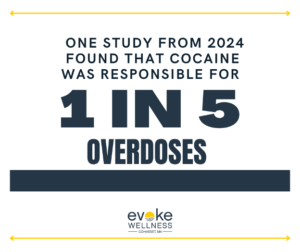This addictive stimulant originates from coca plants native to South America. Through a complex process, the plant’s alkaloids are extracted and transformed into the fine white powder known on the streets as cocaine. While the high may seem fleeting and harmless, cocaine wreaks havoc on the brain’s reward pathways leading to destructive cravings and addiction. The good news is treatment and recovery are possible, even for those in the throes of severe addiction. With compassion and evidence-based therapies, lives can be restored no matter how broken they seem. The journey begins by understanding the drug and its effects. To start that journey, call us at (617) 917-3485 today or reach out online.
The Origins of Cocaine: The Coca Plant
An Ancient Plant
The origins of cocaine can be traced back to the coca plant. It is a bush native to the Andes mountain range in South America. For thousands of years, indigenous cultures have chewed coca leaves to get a mild stimulant effect.
From Plant to Drug
In the 1800s, the active ingredient in coca leaves – cocaine – was isolated into its pure chemical form. This allowed more potent doses and different methods of ingestion like snorting or injecting. The extracted cocaine proved much more addictive than chewing coca leaves.
A Destructive Legacy
Originally touted as a “wonder drug,” cocaine’s dark side soon became clear. Its euphoric highs are followed by devastating lows – depression, paranoia, and powerful addictive cravings. Cocaine destroys lives, families and communities through its profoundly destructive effects.
How Cocaine Is Made: Cocaine Production
Coca Plant Cultivation
The production process starts with cultivating coca plants natively grown in the Andean regions of South America. These plants contain cocaine alkaloid, the key ingredient for making the drug. Farmers carefully tend to the crops, harvesting and drying the leaves.
Extraction and Processing
The dried coca leaves undergo a complex chemical process to extract the cocaine alkaloid. This involves soaking the leaves in gasoline or other solvents, then adding potassium permanganate, sulfuric acid, and other hazardous chemicals.
Cocaine Hydrochloride Refinement
The extracted cocaine paste is further refined into cocaine hydrochloride – the purified, powdered form. This refinement happens in secret labs run by drug cartels and traffickers, often located in remote jungle areas. The end product is distributed worldwide through vast, illicit drug networks.
The Effects of Cocaine on the Body and Mind
Physical Effects
Cocaine is a potent stimulant that interferes with the normal functioning of the brain and body. Its physical effects include increased heart rate, elevated blood pressure, and constricted blood vessels – potentially leading to heart attacks or strokes. Long-term use can result in nosebleeds, lung damage, and risk of contracting HIV or hepatitis from sharing paraphernalia.
Mental Effects
The intense but short-lived “high” from cocaine use is accompanied by feelings of restlessness, anxiety, paranoia, anger, and bizarre hallucinations. With repeated use, the brain’s reward pathway becomes disrupted, making it harder to feel pleasure from natural rewards like food and social interaction. This can lead to depression, psychosis, and a powerful psychological addiction.
Addiction Risks
Cocaine is one of the most addictive drugs, due to its short high and subsequent intense cravings. This often leads to a self-perpetuating cycle of binging and withdrawal. Even after abstaining, environmental cues can trigger intense cravings and potential relapse months or years later. One study from 2024 found that cocaine was responsible for 1 in 5 overdoses. Therefore, seeking professional treatment is crucial for overcoming this dangerous addiction.
The Dangers and Long-Term Effects of Cocaine Use
Physical Toll
Cocaine is highly addictive and wreaks havoc on the body. Short-term effects like increased heart rate, constricted blood vessels, and raised body temperature can lead to heart attacks or strokes. Snorting damages nasal tissues and lungs. Long-term use erodes physical and mental health.
Brain Damage
Repeated cocaine exposure alters the brain’s natural chemical balance. This can trigger paranoia, anger, restlessness, panic attacks, and psychosis. Over time, memory, motor skills, and cognitive abilities deteriorate. The brain’s wiring for pleasure and rewards is disrupted, reinforcing compulsive drug-seeking behavior.
Psychological Impact
Cocaine produces short-lived euphoria followed by an intense crash into anxiety, depression, exhaustion, and intense cravings to use again. Users become consumed by getting and using the drug, losing interest in other areas of life. Judgment is impaired, relationships suffer, and emotions become uncontrolled.
The path of cocaine addiction is one of progressive mental and physical decline. But treatment programs utilizing counseling, medication, and social support can help people reclaim their lives. Seeking help is the first crucial step.
Cocaine Addiction Treatment and Recovery
Seeking Professional Help
Overcoming cocaine addiction requires professional treatment. Attempting to quit on your own is extremely difficult and rarely successful due to the drug’s powerfully addictive nature. Seek help from addiction specialists at a reputable rehabilitation center or clinic.
Detoxification
The first step is medically-supervised detox to allow the cocaine to leave your system safely. This rids your body of physical dependence while managing withdrawal symptoms like depression, fatigue, and intense cravings. Acute detox programs provide a safe way to transition from a substance and can be used in combination with medication-assisted treatment.
Therapy and Counseling
Cognitive-behavioral therapy helps identify and change self-destructive patterns of thinking and behavior surrounding cocaine use. Individual therapy and group and family counseling sessions aid in developing coping mechanisms for daily life without cocaine.
Comprehensive Treatment Plan
Long-term recovery requires a comprehensive, customized plan addressing medical, psychological and social needs. This may involve medications, lifestyle changes, support groups and aftercare programs to prevent relapse. With commitment and support, cocaine-free living is achievable.
FAQ: How Can I Get Help for Cocaine Addiction?
Seek Professional Treatment
Cocaine addiction is a serious condition that requires professional help. Seeking treatment from qualified addiction specialists, counselors or therapists is crucial. They can provide evidence-based therapies, such as cognitive-behavioral therapy (CBT) or contingency management interventions, to address the psychological and behavioral aspects of addiction.
Consider Inpatient Rehabilitation
For severe cases or those struggling with relapse, inpatient or residential rehabilitation programs may be recommended. These programs offer a structured, supportive environment away from triggers and access to 24/7 medical supervision during the initial stages of recovery.
Join Support Groups
Support groups like Cocaine Anonymous (CA) or Narcotics Anonymous (NA) can be invaluable resources. Attending meetings allows you to connect with others in recovery, share experiences, and build a supportive network. The sense of community and accountability can aid in staying motivated throughout the recovery journey.
Take Care of Mental Health
Co-occurring mental health issues, such as depression or anxiety, often accompany cocaine addiction. Seeking dual diagnosis treatment that addresses both substance abuse and mental health concerns is essential for long-term recovery success.
Conclusion
While the coca plant itself has a long history and cultural significance in South America, the process of extracting and refining cocaine from it yields a dangerous and destructive drug. The effects of cocaine on the brain and body can rapidly lead to addiction, financial ruin, damaged relationships, and even death. But there is hope – with proper treatment and support, recovery from cocaine addiction is possible. Reach out to local addiction and mental health resources today to get help and take the first step in reclaiming your life.
Begin Your Journey with Evoke Wellness at Cohasset
If you or a loved one is considering treatment, Evoke Wellness at Cohasset invites you to contact us. Our compassionate team is ready to answer your questions, discuss your needs, and help you take the first steps toward recovery. In Cohasset, you’ll find more than just a treatment program – you’ll discover a community dedicated to your wellness and success. Together, let’s embrace the journey to recovery and the promise of a new beginning. Call us at (617) 917-3485 today or reach out online.





